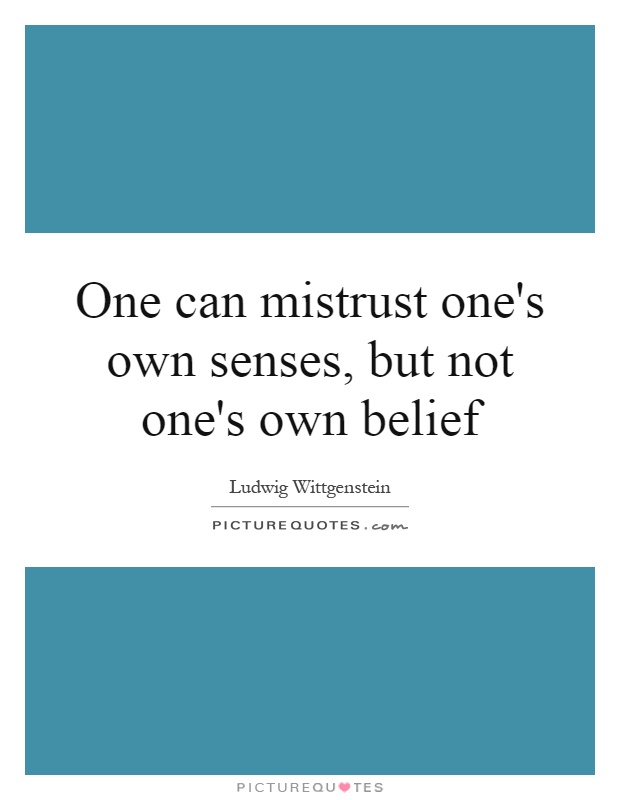One can mistrust one's own senses, but not one's own belief

One can mistrust one's own senses, but not one's own belief
Ludwig Wittgenstein, a renowned Austrian-British philosopher, is known for his work in the fields of logic, philosophy of language, and philosophy of mind. One of the key themes in Wittgenstein's philosophy is the idea that language and belief are closely intertwined, and that our beliefs shape our understanding of the world around us. In this context, the statement "One can mistrust one's own senses, but not one's own belief" takes on a new significance.Wittgenstein believed that our beliefs are fundamental to our understanding of the world, and that they form the basis of our language and communication. In his famous work "Philosophical Investigations," he argues that language is not a fixed set of rules or definitions, but rather a dynamic system that is shaped by our beliefs and experiences. Our beliefs, according to Wittgenstein, are not just passive mental states, but active forces that shape our perception of reality.
In this light, the statement "One can mistrust one's own senses, but not one's own belief" can be understood as a reflection of Wittgenstein's view that our beliefs are more fundamental and reliable than our sensory experiences. While our senses can sometimes deceive us or be unreliable, our beliefs are the lens through which we interpret and make sense of the world. Our beliefs provide us with a framework for understanding reality, and they are not easily shaken by external influences.
Wittgenstein's emphasis on the importance of belief in shaping our understanding of the world has profound implications for philosophy and epistemology. It challenges the traditional view that knowledge is based solely on sensory experience and empirical evidence, and suggests that our beliefs play a crucial role in shaping our understanding of reality. By highlighting the primacy of belief over sensory experience, Wittgenstein invites us to reconsider the nature of knowledge and the ways in which we come to know and understand the world around us.












 Friendship Quotes
Friendship Quotes Love Quotes
Love Quotes Life Quotes
Life Quotes Funny Quotes
Funny Quotes Motivational Quotes
Motivational Quotes Inspirational Quotes
Inspirational Quotes